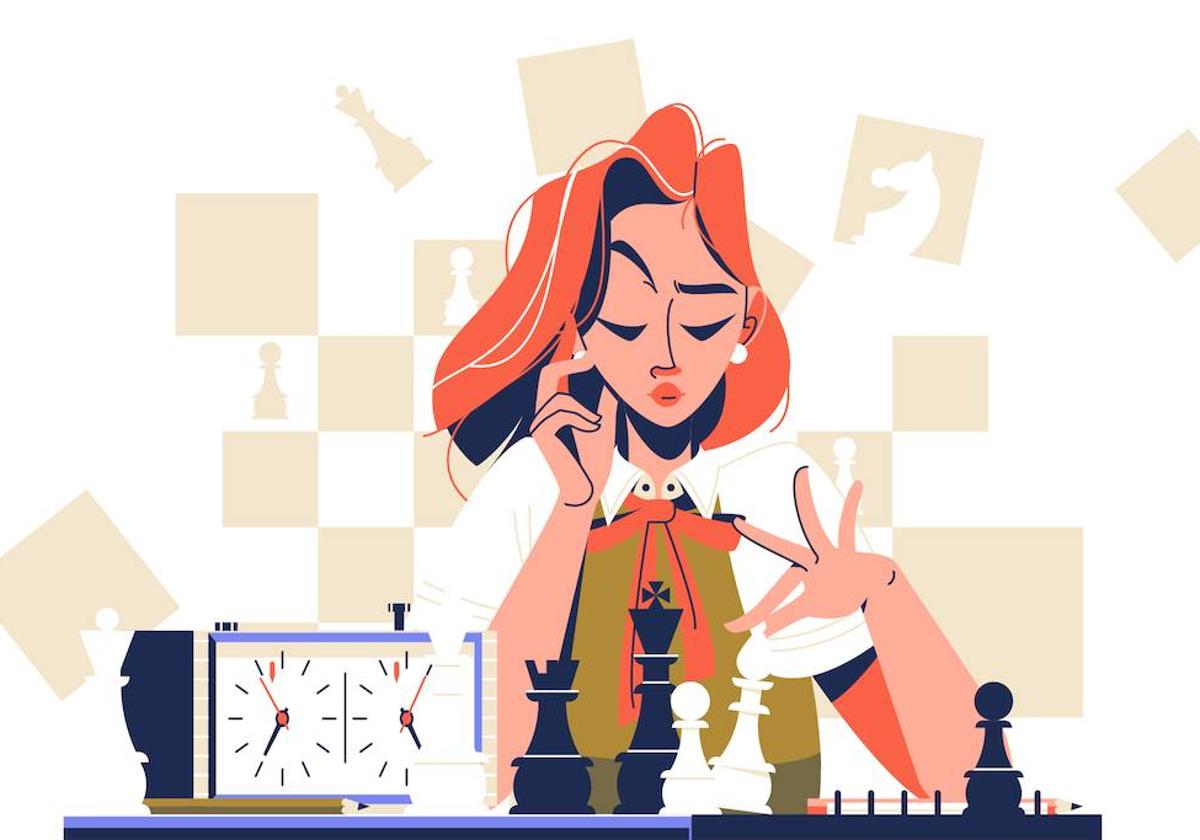The healing powers of chess
Chess is being used to treat learning difficulties and mental health problems and prevent cognitive deterioration in the elderly
Marta Fernández Vallejo
Friday, 25 August 2023, 17:01
We all know the old clichés around chess - it is 'only for really bright people', it is a 'game that develops the brain', it 'improves concentration'...
Yet, for mental health in general, chess can bring a world of benefits, especially in terms of emotional well-being - this is what experts now call 'psycho chess'.
It is being used by education specialists to treat attention disorders, learning problems and even autism. It is also in hospitals as part of psychiatric therapy and in centres for the elderly, helping hold back cognitive decline.
The digital world has not, as many believe, done away with chess. María Rodrigo Yanguas, health psychologist and author of a book on the subject explains, "There has been a 'boom' after the pandemic, a period during which board games became very important and, for chess in particular, more so among women. TV series The Queen's Gambit gave chess a boost, highlighting in particular the participation of women in the game. Once a sport mostly for men, it seems young women are signing up in force.
Rodrigo describes playing chess as a way of not getting bogged down in day-to-day difficulties and learning how to face up to them more.
At a time when console games, Instagram, TikTok and YouTube videos lead the way, "in this world of immediacy, of giving young people everything ready-made on a plate, chess requires us to stop and think, to reflect, to control our emotions. These are skills that are becoming much harder for children and teenagers to acquire," says Rodrigo, who is also a member of the women's section of the Spanish Chess Federation.
In the classroom
One of the main benefits for children of playing chess is learning self-control. "It is very common to hear parents say 'my child does everything without thinking'. Chess teaches us to think. It has rules, each player makes a move and needs to wait for their opponent's move before making their next one. This makes the child understand how impulsiveness only leads to them making mistakes because they rush in and then realise that, by adopting an attitude of calm reflection and self-control, they can stand up to their competitor," says Rodrigo, who runs therapy workshops using chess.
Another key feature of young people today is their low tolerance of frustration. They expect immediate rewards, which limits their ability to make an effort. When we play a game of chess, we learn to "delay gratification", a quality that encourages taking responsibility.
"We often choose to reject an immediate but small advantage, such as winning a pawn, in favour of a larger one in the long term: checkmate."
Chess also forces us to focus on the here and now. "It teaches you to have the courage to move a piece, to avoid being paralysed in the face of adversity. It forces you to be realistic and know that, with any movement of a simple pawn, you change the course of the game," said Rodrigo.
The introduction of chess to the classroom, including as a subject in its own right, has demonstrated its educational value. Ten of Spain's 17 regions have included it in the school timetable. Teachers also use the game as a tool to teach language and mathematics. "It is the best example of an intellectual activity through play, a very important one at that, as children want to play," explains Eugenio Fedriani, psychologist and professor at Pablo de Olavide University.
Training the mind
Memory test: Place ten chess pieces on the board, stare at them for ten seconds, remove them, and then try to put them back.
Chess sudoku: The goal in this challenge is to fill in the squares of a 4x4 square so that in each column and each row there is only one type of chess piece. It starts with several pieces already placed on the board.
What skills can it strengthen in the classroom? The list is long. "It teaches children to respect the rules, improves memory and concentration, it helps them to plan and think things over and it prevents attention disorders," says the professor. It also improves reading and writing, spatial vision and mathematics. Finally, it is especially recommended for students with attention deficit disorders.
Chess has become a popular tool in the consulting rooms of psychiatrists and psychologists. "It is increasingly used as a cognitive training tool for different mental health conditions such as schizophrenia, drug addiction, autism spectrum disorders and neurodegenerative diseases."
The prevention of cognitive deterioration is one of the areas in which its use has increased the most. Numerous studies have shown its effects in delaying and stopping Alzheimer's. "More and more centres for the elderly are promoting chess. The mind is a muscle that can be trained but, unlike other techniques, this work includes a playful element, it is done by playing," explains Rodrigo.



